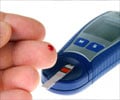A study published in the Lancet has recommended strict control of blood sugar if diabetics wish to cut their heart attack risk.
By undertaking a meta-analysis which pooled information from five large trials, Cambridge University researchers came to the conclusion that people with diabetes who maintain intensive, low blood sugar levels are significantly less likely to suffer heart attacks and coronary heart disease.The research was funded by the British Heart Foundation. It pointed to a 17 reduction in heart attacks and a 15 percent reduction in coronary heart disease. However, the study found a more modest trend towards reduction in strokes with intensive control of glucose levels compared to standard care.
It has been proved many times that diabetics are at increased risk of heart disease. Even though patients can reduce their risk by maintaining healthy blood pressure levels and cholesterol reduction, the risk remains high.
Dr Kausik Ray of the University of Cambridge, lead author of the study, said:
"Previous studies have been inconclusive, leaving diabetics and their doctors unsure as to whether maintaining lower blood sugar levels actually benefitted the patients.
"Although additional research needs to be conducted, our findings provide insight into the importance of improving glucose levels which should include lifestyle changes as well as medication."
Advertisement
In healthy individuals, HbA1c levels average between 4-5 percent. However, diabetics often have levels above 6.5 percent.
Advertisement
Source-ANI
TAN/L















